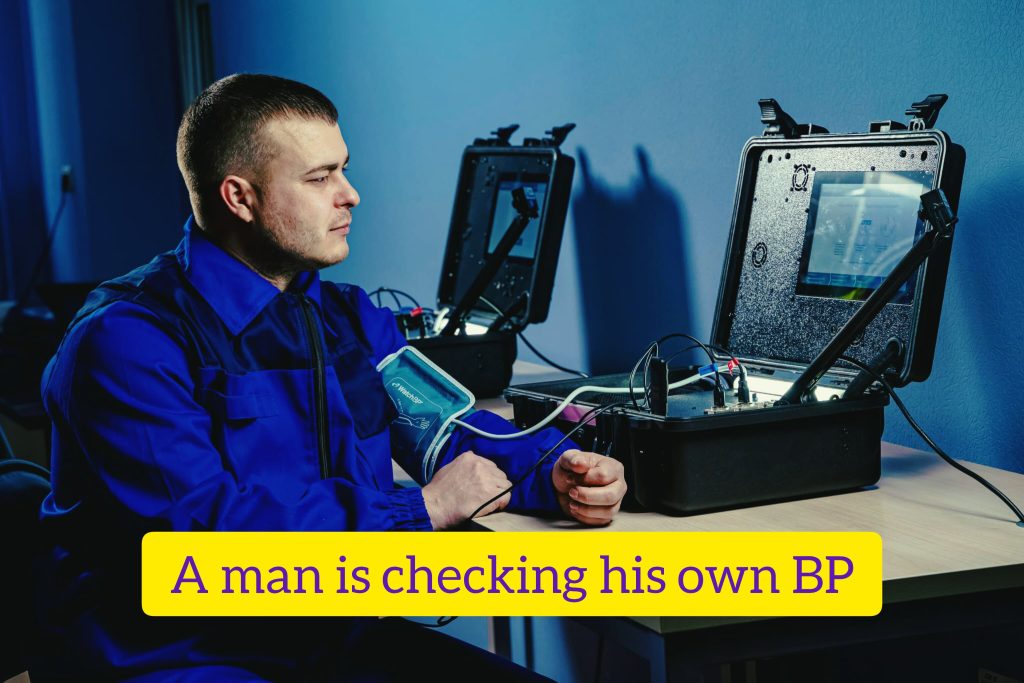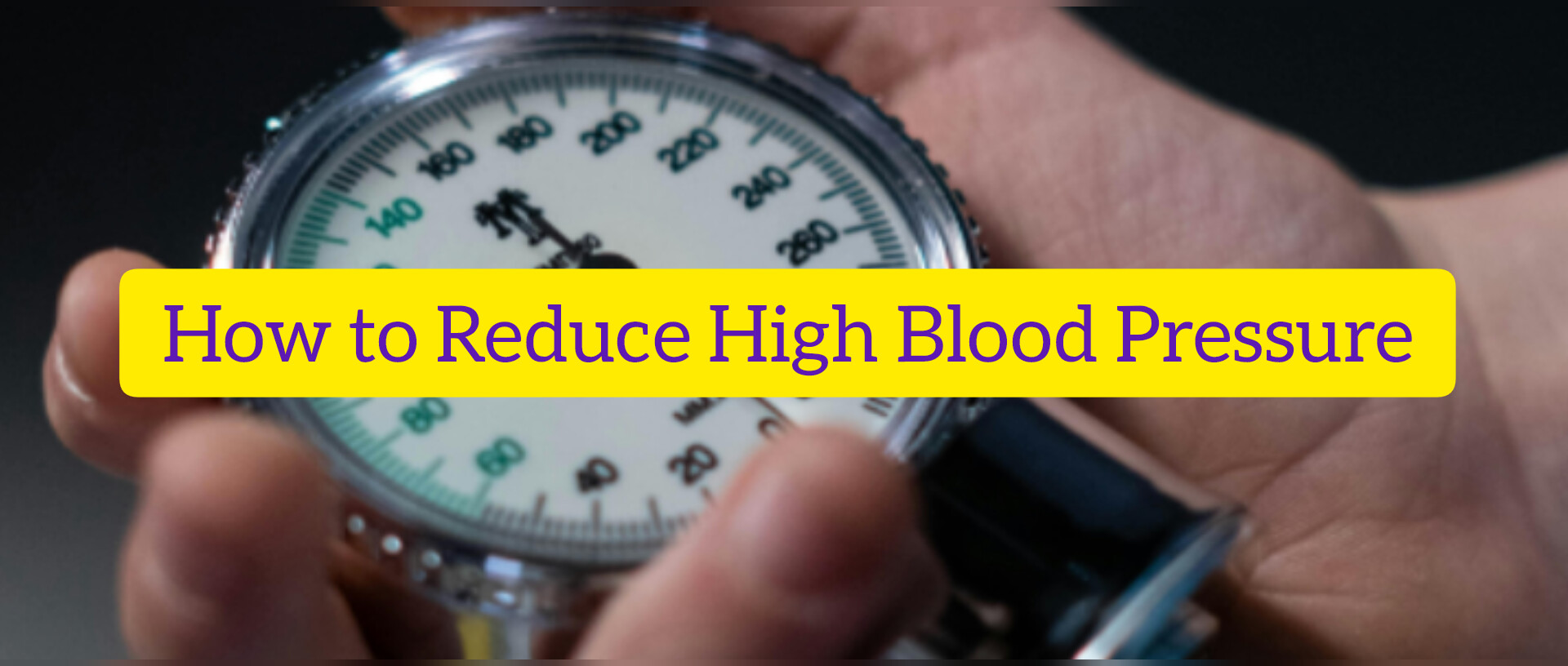Table of Contents
Introduction
Are you losing against headaches, anger, and anxiety? Let’s discuss one of the most dangerous medical conditions, which is called high blood pressure or hypertension. It is a chronic disease in which the force of your blood pushes the walls of your arteries more than normal pressure with the risk of damaging them and causing serious health issues like heart disease and strokes. It is a major reason for premature deaths around the world.
Statistics
Here are some key facts to understand the sensitivity of this disease:
- There is an increase in youngsters who have high blood pressure.
- Lower and middle-income countries have a higher rate of hypertensive patients.
- 46-50% of patients don’t even know that they have high blood pressure.
- 1 in 5 (21%) have their hypertension under control.
- Less than 40% of patients are diagnosed and treated.
Readings of Blood Pressure
Blood pressure is measured in the following two readings:
Systolic Pressure
The pressure applied on the walls of arteries when your heart beats, is called systolic pressure.
Diastolic Pressure
The pressure that remains in your arteries when your heart beats is called diastolic pressure.

Measurements and Stages
Following are different stages of blood pressure according to its measurements:
| Stages | Measurements (mmHg) |
| Low | Less than 90/60 |
| Normal | 120/80 |
| Prehypertension | 120-139/80-89 |
| Stage 1 hypertension | 140-159/90-99 |
| Stage 2 hypertension | 160/100 or above |
Risk Factors
It is important to know about the causes and risk factors of high blood pressure or hypertension before we go through the strategies to reduce it.
1. Age
Age is a minor and unstoppable risk factor for high blood pressure, usually starting at 25–30 years old.
2. Family History
If someone in your family (parents or grandparents) has high blood pressure, you may have a chance to suffer from it and it is another risk factor, you can do nothing about.
3. Race
Black adults are more likely to have high blood pressure than brown and white ones. It’s another risk factor, you can do nothing about.
4. Table Salt
Table salt contains sodium, which is one of the major risk factors for high blood pressure. It’s a controllable risk factor.
5. Weight
Obesity or being overweight is another controllable risk factor.
6. Physical Inactivity
Physical inactivity is also a controllable risk factor.
7. Smoking
Smoking is also a controllable risk factor.
8. Alcohol Consumption
Alcohol consumption is also a controllable risk factor.
9. Mental Stress

Mental stress is a very sensitive and usually uncontrollable risk factor for high blood pressure.
Causes of High Blood pressure
1. Diabetes
Chronic diabetes can cause hypertension because:
- It damages the blood vessels and makes them less elastic.
- It can cause kidney problems, causing kidneys not to filter waste properly.
- Diabetes can disturb the balance of hormones that are responsible for the regulation of blood pressure.
2. Kidney Disorder
Kidney disorder is the most common reason for high blood pressure. Treatment is either possible or impossible, depending on the current medical and physical condition of the patient.
3. Damaged Blood Vessels
Diseases like diabetes and increased cholesterol, potentially damage your blood vessels.
4. Adrenal Gland Disorders
Tumors or other adrenal gland disorders can cause the release of hormones that can increase your blood pressure.
5. Pregnancy
Pregnancy can also increase blood pressure.
6. Several Medications
Medications like painkillers, decongestants and birth control pills can also increase blood pressure.
Symptoms of Hypertension
Hypertension initially doesn’t have any symptoms. When it gets extreme, it gives the following symptoms:
- Headaches
- Anxiety or confusion
- Blurred or disturbed vision
- Chest pain
- Disturbed breathing
- Nausea or vomiting
- Dizziness or lightheadedness
- Nasal bleeding
- Buzzing in the ears
Since hypertension gives symptoms that may be associated with some other medical conditions, it is also considered as silent killer.
Health Risks
The following health risks are associated with high blood pressure or hypertension:
1. Coronary Artery Disease
When the inner layer of arteries can’t face high blood pressure, it gets damaged. After this, Low-Density Lipoprotein is collected into the arteries’ walls, attracting more white blood cells which narrow the arteries, providing less area for blood circulation. When blood supply into the heart muscle is reduced because of narrow blood vessels, it increases the risk of chest pain and heart attack.
2. Heart Failure
When the heart muscle doesn’t receive enough blood, it gets weaker and fails to pump enough blood according to the body’s needs.
3. Stroke
Weak blood vessels lead to a blockage or burst in them. A burst or blocked blood vessel in the brain may cause a stroke. Stroke leads to paralysis, speech disorders and even death.
4. Kidney Failure
High blood pressure damages tiny blood vessels in the kidneys so kidneys can’t properly filter wastes from the blood, causing chronic kidney disease and kidney failure.
5. Vision Problems
When high blood pressure damages the blood vessels in your eyes, this can lead to blurred vision, bleeding or loss of vision.
6. Sexual Disability
High blood pressure damages blood vessels and nerves, causing erectile dysfunction (impotence) in men and decreased libido in women.
7. Dementia
High blood pressure damages blood vessels in the whole body, including those responsible for supplying blood to your brain. This can lead to cognitive decline or dementia.
8. Other Health Problems
- High blood pressure can be a cause of Peripheral Artery Disease (PAD), which decreases
- It can also cause aortic aneurysm, where the main artery from the heart gets weaker and bulges.
Remember! These are some health risks related to untreated hypertension, depending upon the duration of uncontrolled blood pressure.
Strategies to Reduce High Blood Pressure
1. Healthy Diet

- Eat less table salt in your food.
- Eat a lower amount of red meat.
- Take a lower amount of cooking oil.
- Eat more vegetables.
- Eat more fruits.
- Eat whole grains and nuts.
2. Exercise
Spend at least 210 minutes in activities like walking, running, swimming, other types of exercises and sports.
3. Drinks
- Drink more water, organic juices of fruits and vegetables and green tea.
- Don’t drink artificial juices, beverages, alcohol and coffee because they’re all bad for your stomach and kidneys.
4. Don’t Smoke
Avoid any type of smoking because it harms your health from head to toe.
5. Counter the Stress
Here are some tips to release your stress:
- Find proper solutions to your problems.
- Avoid meeting those people who are repeatedly hurting you.
- Try a freelancing environment if you are not ready to work under someone.
- Avoid the addiction to smart devices.
- Avoid crimes.
- Avoid sadism and controversies.
- Control your emotions.
- Avoid getting into temporary relationships.
6. Monitor your Blood Pressure
Keep yourself up to date by checking your blood pressure daily and particularly when you feel any of it’s symptoms.
7. Avoid Self Medication
Do not take any medicine on your own, without the prescription of a well-qualified doctor.
Disclaimer
This is a detailed blog about high blood pressure or hypertension. This blog is to help people positively but if you’re facing any abnormalities in your health, remember to consult a professional doctor before taking any of the above steps. Do not copy any of our content to avoid copyright issues.
Additional Information
- If you have any queries, feel free to leave a comment. We’ll answer.
- If you want to read a more detailed blog, click on the link below:

